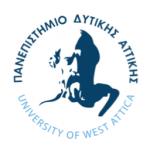2022 |
Kyprianos, Konstantinos; Kontou, Panagiota The use of social media in Greek museums during the COVID-19 pandemic Journal Article In: Museum Management and Curatorship, vol. 38, iss. 5, 2022. Abstract | Links | BibTeX | Tags: museums, social media @article{nokey,For future historians, the year 2020 will undoubtedly represent the beginning of the twenty-first century, as the outbreak of the COVID-19 pandemic holistically shaped the fate of humanity for years to come, severely affecting all sectors even cultural organizations. Despite all of the challenges and problems caused by the pandemic, it has encouraged the development of a new digital landscape, through the services of which each museum will be able to expand its reputation and maintain and strengthen contact with its visitors, developing meaningful dialog and communication with them. To capture the reactions of Greek museums towards the restrictions imposed by the pandemic, the present quantitative research aims to examine issues of digital presence in social media, as well as their management practices. The study partly reveals the museums’ efforts to modernize, but it also demonstrates their inability to listen to and implement the standard practices of international institutions. |
Drivas, Ioannis C; Christina, Xilogianni; Doukas, Filippos; Kouis, Dimitrios Speed matters: What to prioritize in optimization for faster websites Journal Article In: Analytics, vol. 1, iss. 2, pp. 175-192, 2022. Abstract | Links | BibTeX | Tags: analytics, libraries, museums, performance, web analytics, website @article{nokey,Website loading speed time matters when it comes to users’ engagement and conversion rate optimization. The websites of libraries, archives, and museums (LAMs) are not an exception to this assumption. In this research paper, we propose a methodological assessment schema to evaluate the LAMs webpages’ speed performance for a greater usability and navigability. The proposed methodology is composed of three different stages. First, the retrieval of the LAMs webpages’ speed data is taking place. A sample of 121 cases of LAMs worldwide has been collected using the PageSpeed Insights tool of Google for their mobile and desktop performance. In the second stage, a statistical reliability and validity analysis takes place to propose a speed performance measurement system whose metrics express an internal cohesion and consistency. One step further, in the third stage, several predictive regression models are developed to discover which of the involved metrics impact mostly the total speed score of mobile or desktop versions of the examined webpages. The proposed methodology and the study’s results could be helpful for LAMs administrators to set a data-driven framework of prioritization regarding the rectifications that need to be implemented for the optimized loading speed time of the webpages. |
2021 |
Drivas, Ioannis C; Kouis, Dimitris; Kyriaki-Manessi, Daphne; Giannakopoulos, Georgios Content Management Systems Performance and Compliance Assessment Based on a Data-Driven Search Engine Optimization Methodology Journal Article In: Information, vol. 12, no. 7, pp. 18, 2021. Abstract | Links | BibTeX | Tags: archives, content management systems, libraries, museums, search engine optimization, web analytics @article{Drivas2021b,While digitalization of cultural organizations is in full swing and growth, it is common knowledge that websites can be used as a beacon to expand the awareness and consideration of their services on the Web. Nevertheless, recent research results indicate the managerial difficulties in deploying strategies for expanding the discoverability, visibility, and accessibility of these websites. In this paper, a three-stage data-driven Search Engine Optimization schema is proposed to assess the performance of Libraries, Archives, and Museums websites (LAMs), thus helping administrators expand their discoverability, visibility, and accessibility within the Web realm. To do so, the authors examine the performance of 341 related websites from all over the world based on three different factors, Content Curation, Speed, and Security. In the first stage, a statistically reliable and consistent assessment schema for evaluating the SEO performance of LAMs websites through the integration of more than 30 variables is presented. Subsequently, the second stage involves a descriptive data summarization for initial performance estimations of the examined websites in each factor is taking place. In the third stage, predictive regression models are developed to understand and compare the SEO performance of three different Content Management Systems, namely the Drupal, WordPress, and custom approaches, that LAMs websites have adopted. The results of this study constitute a solid stepping-stone both for practitioners and researchers to adopt and improve such methods that focus on end-users and boost organizational structures and culture that relied on data-driven approaches for expanding the visibility of LAMs services. |
2014 |
Kyriaki-Manessi, Daphne History of Information Organization Conference Proceedings of the Conference "History of Information. Law Library of the University of Athens, 2014, ISBN: 978-960-562-270-1. BibTeX | Tags: archives, information organizations, libraries, museums @conference{Kyriaki-Manessi2014b, |
Indicative Publications
2022 |
The use of social media in Greek museums during the COVID-19 pandemic Journal Article In: Museum Management and Curatorship, vol. 38, iss. 5, 2022. |
Speed matters: What to prioritize in optimization for faster websites Journal Article In: Analytics, vol. 1, iss. 2, pp. 175-192, 2022. |
2021 |
Content Management Systems Performance and Compliance Assessment Based on a Data-Driven Search Engine Optimization Methodology Journal Article In: Information, vol. 12, no. 7, pp. 18, 2021. |
2014 |
History of Information Organization Conference Proceedings of the Conference "History of Information. Law Library of the University of Athens, 2014, ISBN: 978-960-562-270-1. |

